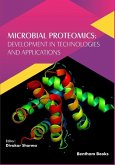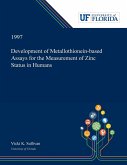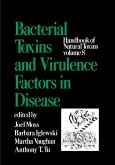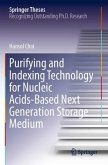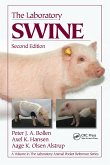Microbial Based Land Restoration Handbook, Two Volume Set
Herausgeber: Pankaj, Umesh; Pandey, Vimal
Microbial Based Land Restoration Handbook, Two Volume Set
Herausgeber: Pankaj, Umesh; Pandey, Vimal
- Broschiertes Buch
- Merkliste
- Auf die Merkliste
- Bewerten Bewerten
- Teilen
- Produkt teilen
- Produkterinnerung
- Produkterinnerung
The first handbook that covers all aspects of bio-inoculants used for the remediation of polluted lands and for improving soil fertility and crop productivity. It discusses all novel sustainable approaches for the reclamation of problematic soils. A single comprehensive platform for soil scientist, agriculture specialists, ecologists, etc.
Andere Kunden interessierten sich auch für
![Microbial Bioprocessing of Agri-Food Wastes, Four-Volume Set Microbial Bioprocessing of Agri-Food Wastes, Four-Volume Set]() Microbial Bioprocessing of Agri-Food Wastes, Four-Volume Set587,99 €
Microbial Bioprocessing of Agri-Food Wastes, Four-Volume Set587,99 €![Microbial Proteomics Microbial Proteomics]() Divakar SharmaMicrobial Proteomics104,99 €
Divakar SharmaMicrobial Proteomics104,99 €![Development of Metallothionein-based Assays for the Measurement of Zinc Status in Humans Development of Metallothionein-based Assays for the Measurement of Zinc Status in Humans]() Vicki SullivanDevelopment of Metallothionein-based Assays for the Measurement of Zinc Status in Humans74,99 €
Vicki SullivanDevelopment of Metallothionein-based Assays for the Measurement of Zinc Status in Humans74,99 €![Handbook of Natural Toxins, Volume 8 Handbook of Natural Toxins, Volume 8]() MossHandbook of Natural Toxins, Volume 894,99 €
MossHandbook of Natural Toxins, Volume 894,99 €![Purifying and Indexing Technology for Nucleic Acids-Based Next Generation Storage Medium Purifying and Indexing Technology for Nucleic Acids-Based Next Generation Storage Medium]() Hansol ChoiPurifying and Indexing Technology for Nucleic Acids-Based Next Generation Storage Medium206,99 €
Hansol ChoiPurifying and Indexing Technology for Nucleic Acids-Based Next Generation Storage Medium206,99 €![The Laboratory Swine The Laboratory Swine]() Peter J a BollenThe Laboratory Swine82,99 €
Peter J a BollenThe Laboratory Swine82,99 €![A Mousetrap for Darwin A Mousetrap for Darwin]() Michael J. BeheA Mousetrap for Darwin30,99 €
Michael J. BeheA Mousetrap for Darwin30,99 €-
-
-
The first handbook that covers all aspects of bio-inoculants used for the remediation of polluted lands and for improving soil fertility and crop productivity. It discusses all novel sustainable approaches for the reclamation of problematic soils. A single comprehensive platform for soil scientist, agriculture specialists, ecologists, etc.
Hinweis: Dieser Artikel kann nur an eine deutsche Lieferadresse ausgeliefert werden.
Hinweis: Dieser Artikel kann nur an eine deutsche Lieferadresse ausgeliefert werden.
Produktdetails
- Produktdetails
- Verlag: Taylor & Francis Ltd
- Seitenzahl: 590
- Erscheinungstermin: 13. März 2025
- Englisch
- Abmessung: 234mm x 156mm
- Gewicht: 453g
- ISBN-13: 9780367705848
- ISBN-10: 0367705842
- Artikelnr.: 73120370
- Herstellerkennzeichnung
- Libri GmbH
- Europaallee 1
- 36244 Bad Hersfeld
- gpsr@libri.de
- Verlag: Taylor & Francis Ltd
- Seitenzahl: 590
- Erscheinungstermin: 13. März 2025
- Englisch
- Abmessung: 234mm x 156mm
- Gewicht: 453g
- ISBN-13: 9780367705848
- ISBN-10: 0367705842
- Artikelnr.: 73120370
- Herstellerkennzeichnung
- Libri GmbH
- Europaallee 1
- 36244 Bad Hersfeld
- gpsr@libri.de
Dr. Vimal Chandra Pandey is internationally recognized in the field of Phyto management of polluted sites. Dr. Pandey is a CSIR-Pool Scientist at the Department of Environmental Science, Babasaheb Bhimrao Ambedkar University, Lucknow, India. He also works as a Consultant at CSTUP and DST-Young Scientist at the Plant Ecology and Environmental Science Division, CSIR-National Botanical Research Institute, Lucknow, India. He is a recipient of a number of awards, honors, and fellowships such as CSTUP-Young Scientist award, DST SERB-Young scientist award, UGC-Dr. DS Kothari Postdoctoral Fellowship. He is a Member of IUCN-CEM Ecosystem Restoration, Agro-ecosystems, South Asia, and a member of the BECT's Editorial Board. He has published more than 52 peer-reviewed articles and 37 book chapters. He is the author and editor of four books published by Elsevier. His high-quality research papers have good citations and have been cited worldwide by researchers within a short period of time. He is also serving as a potential reviewer for several journals from Elsevier, Springer, Wiley, Taylor & Francis etc. Dr. Umesh Pankaj is a Teaching and Research Associate in the Microbiology Department at Rani Lakshmi Bai Central Agricultural University, Jhansi, India. His doctoral degree in Microbiology was awarded from Jawaharlal Nehru University, New Delhi. His area of research is mainly focused on the phytoremediation of salt-affected soil using halotolerant Bio-inoculants like PGPRs and Arbuscular Mycorrhiza Fungi. Currently, he is working on Biofertilizers used for sustainable development. He has published 11 research articles in peer reviewed international journals and 5 book chapters. He has received Young Microbiologist Award from Agro-Environmental Development Society, Uttar Pradesh and Best Poster Award from ICAR-Indian Institute of Sugarcane Research, India. He is a life member of various scientific societies.
Volume 1: Chapter 1. Plant Microbe Consortium for Heavy Metals Removal From
Contaminated Soil, Chapter 2. Role of Plant-microbial Secondary Metabolites
in Stress Mitigation: Current Knowledge and Future Directions, Chapter 3.
Biochar-microbe Interactions: an Integrated Mitigation Approach for
Emerging Pollutant Management, Chapter 4. Next-gen Approaches to Understand
Plant-microbe Interactions Providing Abiotic Stress Tolerance in Plants,
Chapter 5. Bio-nanotechnology in Plant Protection: a Novel Frontier for
Risk Mitigation Towards Sustainable Agriculture, Chapter 6. Metagenomics of
Sustainably Bioremediating Microbial Diversity, Chapter 7. Plant Growth
Promoting Microbial Consortia for Alleviation of Abiotic Stress in
Medicinal and Aromatic Plants, Chapter 8. Symbiotic Effect of Mycorrhizal
Fungi and Native Plant on Phytoremediation of Contaminated Soils, Chapter
9. Biopesticide Usage: an Alternative to the Menace of Chemical Hazard for
Sustainable Plant Protection, Chapter 10. Plastic Degrading Microorganisms:
Eco-friendly Tool: for Combating Plastic Pollution in Soil, Chapter 11. An
Integrated Approach for Rehabilitation of Mine Spoil Based on Plant Microbe
Interactions, Chapter 12. Microbial Remediation of Hazardous Chemical
Pesticides Towards Sustainable Agriculture, Chapter 13. Plant-soil-microbe
Interaction for Organic Production of Oilseeds
Volume 2: Chapter 1. Role of Soil Microorganisms in Sustainable Crop
Production, Chapter 2. Microbial Mediated Molecular Mechanisms to Cope-up
Salinity and Drought Stress in Plants , Chapter 3. Role of Arbuscular
Mycorrhizal Fungi in Horticultural Crops: Gains and Provocations, Chapter
4. Endophytes and Their Role in Managing Degraded Land and Enhancing Food,
Fodder, Fuel and Fiber Production , Chapter 5. Microbial Strategies for
Improving the Food Crop Productivity Under Salinity and Drought, Chapter 6.
Secondary Metabolites: Stress Busters for the Development of Resilience in
Plants to Sustainable Agriculture, Chapter 7. Bacillus-based Biocontrol:
Practical Applications for Sustainable Agriculture, Chapter 8. Recognizing
Insight Interaction, Adaptation & Potentialities of Phyllosphere Microbiome
Under Various Distress Towards Sustainable Plant Growth, Chapter 9.
Importance of Bio-fertilizers in Turmeric (Curcuma Longa): Prospects and
Challenges, Chapter 10. Role of Soil Organisms in Maintaining Soil Health,
Chapter 11. Recent Advances in Potentiality of Microbes in Promoting Plant
Growth and Managing Degraded Land , Chapter 12. Productivity Losses Through
Bio-deterioration in Water Deficit Harvested Sugarcane, Chapter 13.
Bio-inoculants: the Potential Microbes for Restoration of Degraded Soil
Contaminated Soil, Chapter 2. Role of Plant-microbial Secondary Metabolites
in Stress Mitigation: Current Knowledge and Future Directions, Chapter 3.
Biochar-microbe Interactions: an Integrated Mitigation Approach for
Emerging Pollutant Management, Chapter 4. Next-gen Approaches to Understand
Plant-microbe Interactions Providing Abiotic Stress Tolerance in Plants,
Chapter 5. Bio-nanotechnology in Plant Protection: a Novel Frontier for
Risk Mitigation Towards Sustainable Agriculture, Chapter 6. Metagenomics of
Sustainably Bioremediating Microbial Diversity, Chapter 7. Plant Growth
Promoting Microbial Consortia for Alleviation of Abiotic Stress in
Medicinal and Aromatic Plants, Chapter 8. Symbiotic Effect of Mycorrhizal
Fungi and Native Plant on Phytoremediation of Contaminated Soils, Chapter
9. Biopesticide Usage: an Alternative to the Menace of Chemical Hazard for
Sustainable Plant Protection, Chapter 10. Plastic Degrading Microorganisms:
Eco-friendly Tool: for Combating Plastic Pollution in Soil, Chapter 11. An
Integrated Approach for Rehabilitation of Mine Spoil Based on Plant Microbe
Interactions, Chapter 12. Microbial Remediation of Hazardous Chemical
Pesticides Towards Sustainable Agriculture, Chapter 13. Plant-soil-microbe
Interaction for Organic Production of Oilseeds
Volume 2: Chapter 1. Role of Soil Microorganisms in Sustainable Crop
Production, Chapter 2. Microbial Mediated Molecular Mechanisms to Cope-up
Salinity and Drought Stress in Plants , Chapter 3. Role of Arbuscular
Mycorrhizal Fungi in Horticultural Crops: Gains and Provocations, Chapter
4. Endophytes and Their Role in Managing Degraded Land and Enhancing Food,
Fodder, Fuel and Fiber Production , Chapter 5. Microbial Strategies for
Improving the Food Crop Productivity Under Salinity and Drought, Chapter 6.
Secondary Metabolites: Stress Busters for the Development of Resilience in
Plants to Sustainable Agriculture, Chapter 7. Bacillus-based Biocontrol:
Practical Applications for Sustainable Agriculture, Chapter 8. Recognizing
Insight Interaction, Adaptation & Potentialities of Phyllosphere Microbiome
Under Various Distress Towards Sustainable Plant Growth, Chapter 9.
Importance of Bio-fertilizers in Turmeric (Curcuma Longa): Prospects and
Challenges, Chapter 10. Role of Soil Organisms in Maintaining Soil Health,
Chapter 11. Recent Advances in Potentiality of Microbes in Promoting Plant
Growth and Managing Degraded Land , Chapter 12. Productivity Losses Through
Bio-deterioration in Water Deficit Harvested Sugarcane, Chapter 13.
Bio-inoculants: the Potential Microbes for Restoration of Degraded Soil
Volume 1: Chapter 1. Plant Microbe Consortium for Heavy Metals Removal From
Contaminated Soil, Chapter 2. Role of Plant-microbial Secondary Metabolites
in Stress Mitigation: Current Knowledge and Future Directions, Chapter 3.
Biochar-microbe Interactions: an Integrated Mitigation Approach for
Emerging Pollutant Management, Chapter 4. Next-gen Approaches to Understand
Plant-microbe Interactions Providing Abiotic Stress Tolerance in Plants,
Chapter 5. Bio-nanotechnology in Plant Protection: a Novel Frontier for
Risk Mitigation Towards Sustainable Agriculture, Chapter 6. Metagenomics of
Sustainably Bioremediating Microbial Diversity, Chapter 7. Plant Growth
Promoting Microbial Consortia for Alleviation of Abiotic Stress in
Medicinal and Aromatic Plants, Chapter 8. Symbiotic Effect of Mycorrhizal
Fungi and Native Plant on Phytoremediation of Contaminated Soils, Chapter
9. Biopesticide Usage: an Alternative to the Menace of Chemical Hazard for
Sustainable Plant Protection, Chapter 10. Plastic Degrading Microorganisms:
Eco-friendly Tool: for Combating Plastic Pollution in Soil, Chapter 11. An
Integrated Approach for Rehabilitation of Mine Spoil Based on Plant Microbe
Interactions, Chapter 12. Microbial Remediation of Hazardous Chemical
Pesticides Towards Sustainable Agriculture, Chapter 13. Plant-soil-microbe
Interaction for Organic Production of Oilseeds
Volume 2: Chapter 1. Role of Soil Microorganisms in Sustainable Crop
Production, Chapter 2. Microbial Mediated Molecular Mechanisms to Cope-up
Salinity and Drought Stress in Plants , Chapter 3. Role of Arbuscular
Mycorrhizal Fungi in Horticultural Crops: Gains and Provocations, Chapter
4. Endophytes and Their Role in Managing Degraded Land and Enhancing Food,
Fodder, Fuel and Fiber Production , Chapter 5. Microbial Strategies for
Improving the Food Crop Productivity Under Salinity and Drought, Chapter 6.
Secondary Metabolites: Stress Busters for the Development of Resilience in
Plants to Sustainable Agriculture, Chapter 7. Bacillus-based Biocontrol:
Practical Applications for Sustainable Agriculture, Chapter 8. Recognizing
Insight Interaction, Adaptation & Potentialities of Phyllosphere Microbiome
Under Various Distress Towards Sustainable Plant Growth, Chapter 9.
Importance of Bio-fertilizers in Turmeric (Curcuma Longa): Prospects and
Challenges, Chapter 10. Role of Soil Organisms in Maintaining Soil Health,
Chapter 11. Recent Advances in Potentiality of Microbes in Promoting Plant
Growth and Managing Degraded Land , Chapter 12. Productivity Losses Through
Bio-deterioration in Water Deficit Harvested Sugarcane, Chapter 13.
Bio-inoculants: the Potential Microbes for Restoration of Degraded Soil
Contaminated Soil, Chapter 2. Role of Plant-microbial Secondary Metabolites
in Stress Mitigation: Current Knowledge and Future Directions, Chapter 3.
Biochar-microbe Interactions: an Integrated Mitigation Approach for
Emerging Pollutant Management, Chapter 4. Next-gen Approaches to Understand
Plant-microbe Interactions Providing Abiotic Stress Tolerance in Plants,
Chapter 5. Bio-nanotechnology in Plant Protection: a Novel Frontier for
Risk Mitigation Towards Sustainable Agriculture, Chapter 6. Metagenomics of
Sustainably Bioremediating Microbial Diversity, Chapter 7. Plant Growth
Promoting Microbial Consortia for Alleviation of Abiotic Stress in
Medicinal and Aromatic Plants, Chapter 8. Symbiotic Effect of Mycorrhizal
Fungi and Native Plant on Phytoremediation of Contaminated Soils, Chapter
9. Biopesticide Usage: an Alternative to the Menace of Chemical Hazard for
Sustainable Plant Protection, Chapter 10. Plastic Degrading Microorganisms:
Eco-friendly Tool: for Combating Plastic Pollution in Soil, Chapter 11. An
Integrated Approach for Rehabilitation of Mine Spoil Based on Plant Microbe
Interactions, Chapter 12. Microbial Remediation of Hazardous Chemical
Pesticides Towards Sustainable Agriculture, Chapter 13. Plant-soil-microbe
Interaction for Organic Production of Oilseeds
Volume 2: Chapter 1. Role of Soil Microorganisms in Sustainable Crop
Production, Chapter 2. Microbial Mediated Molecular Mechanisms to Cope-up
Salinity and Drought Stress in Plants , Chapter 3. Role of Arbuscular
Mycorrhizal Fungi in Horticultural Crops: Gains and Provocations, Chapter
4. Endophytes and Their Role in Managing Degraded Land and Enhancing Food,
Fodder, Fuel and Fiber Production , Chapter 5. Microbial Strategies for
Improving the Food Crop Productivity Under Salinity and Drought, Chapter 6.
Secondary Metabolites: Stress Busters for the Development of Resilience in
Plants to Sustainable Agriculture, Chapter 7. Bacillus-based Biocontrol:
Practical Applications for Sustainable Agriculture, Chapter 8. Recognizing
Insight Interaction, Adaptation & Potentialities of Phyllosphere Microbiome
Under Various Distress Towards Sustainable Plant Growth, Chapter 9.
Importance of Bio-fertilizers in Turmeric (Curcuma Longa): Prospects and
Challenges, Chapter 10. Role of Soil Organisms in Maintaining Soil Health,
Chapter 11. Recent Advances in Potentiality of Microbes in Promoting Plant
Growth and Managing Degraded Land , Chapter 12. Productivity Losses Through
Bio-deterioration in Water Deficit Harvested Sugarcane, Chapter 13.
Bio-inoculants: the Potential Microbes for Restoration of Degraded Soil



